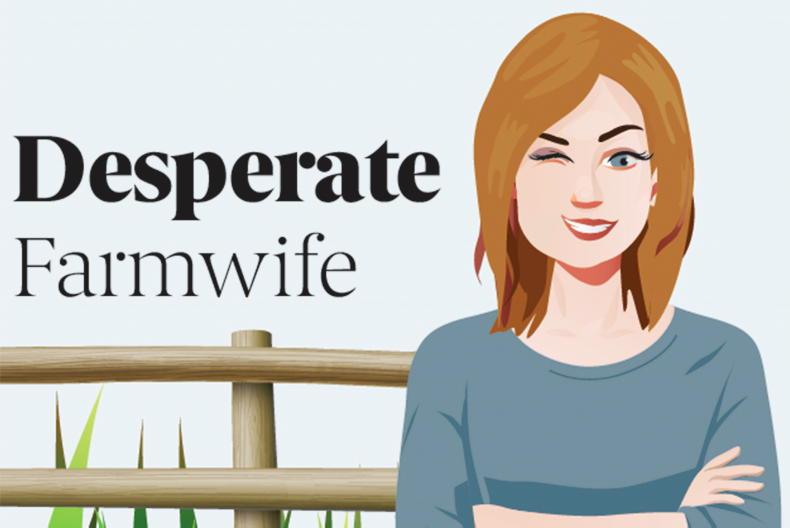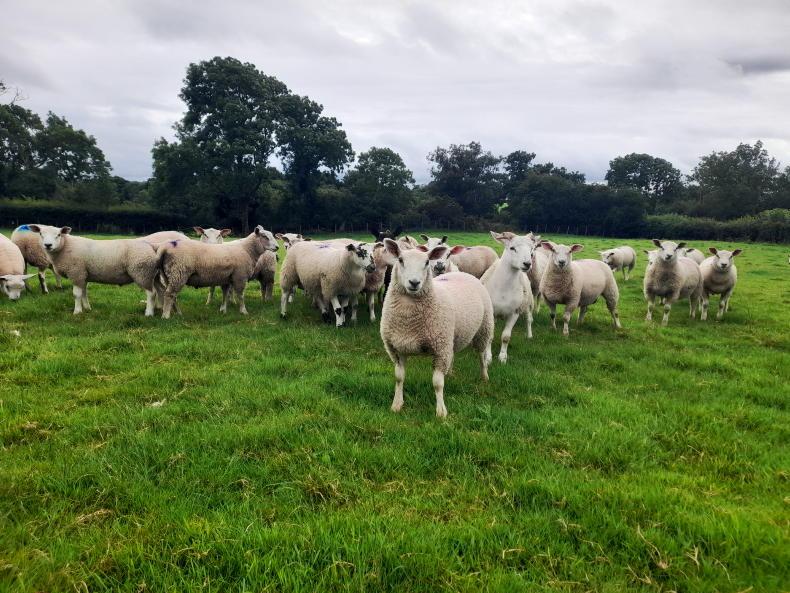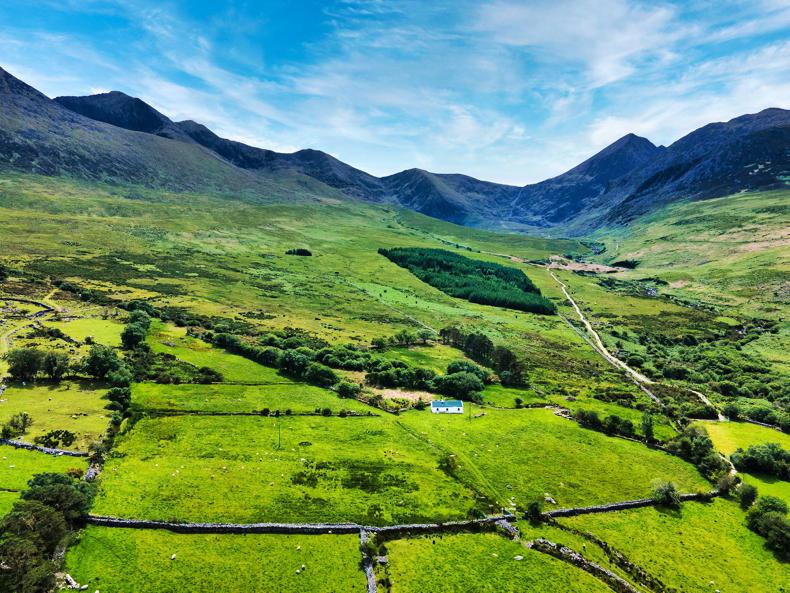In the film Forrest Gump, the main character, played by Tom Hanks, describes the different types of rain they encounter in monsoon season during the Vietnam War. “There’s stinging rain, fat rain, sideways rain and straight up from underneath rain.” After the last few weeks, I think we have encountered it all here in Ireland. The very odd time we see a bit of sun, it’s taken away as soon as you even think about doing anything in the field.
Not dissimilar to the weather, I’m right in the middle of a storm of calving. It’s non-stop. I think it’s the later part of calving season that’s the hardest. This is the time when you’re still up most nights, but you’re also milking a lot more cows and feeding a lot more calves. You have to keep your head down and power through. Even though your arms are aching and you can’t remember what day it is, you can’t let up or a mistake will be made. Unfortunately, you’re human – the inevitable does sometimes happen and we have suffered some loss this season.
Ginger spice
It’s not all doom and gloom, though, and I have some good news to share: my little red and white heifer (lovingly called Ginger Spice by the wife) finally calved. The calf is a healthy heifer and, surprisingly, is not covered in caramel from all the sugary supplement I was feeding her mother.
After a heifer calves for the first time, you have to get them used to being milked, which can be tricky. Ginger has lived up to her name and at first was very spicy in the milking parlour – she nearly took my arm off with a few kicks – but all is well now and we are the best of friends again.
On the farm, you’re always hoping to see Friesian heifers arriving – not bulls. I tried to play God last breeding season and used sexed semen. For anyone not familiar, sexed semen is a type of artificial insemination (which is how most cows are bred) which uses genetic engineering to hopefully affect the sex of the expected calf. In this case, there is a 90% chance that you will have a heifer calf. That’s what they say, anyway, but Mother Nature always has her say and you still end up with the odd bull.
I find it funny when I think back, when my own kids were arriving, that I was always hoping for a boy. I had a vision of my son being this giant of a man with the height of a Viking (from my side) and the massive frame of a highland warrior (from his mother’s side). This never came to pass and instead we had girls. Since, I’ve come to realise how lucky I am (God help me) to be surrounded by so many strong-minded women.
Future generations
It’s strange to think that a son is going to make a better farmer than a daughter, but that’s what we’ve been brought up to believe. The older generation come from a time when the work was more manual, required less paperwork and there was sense of hurt if the farm didn’t stay in the family name. There’s the expectation that future generations follow the same trend. I don’t see it that way.
Women are a lot more likely to drive change on farms. They often bring a different perspective on animal husbandry and appear to be a lot more engaged with overcoming the environmental challenges we face.
I know there’s been a lot of talk about the referendums from a few weeks back, a place for the women in the home and such. In the end, it was all a bit of a mess. But I couldn’t help thinking that while they were at it, they should have added a few lines in there for the recognition of women on the family farm.
I’m not saying women are not currently working on family farms; I’m saying they need to be recognised for the important role they play. There’s a big difference when something is officially recognised at a policy level.
I guess it’s really not such a stretch for a dairy farmer to appreciate the role the women play in his life.
After all, if it weren’t for our herd of women out in the parlour, there’d be no butter for our daily bread.
Read more
Desperate Farmhusband: new cows and auld tricks
Desperate Farmwife: the husband’s view on Christmas
In the film Forrest Gump, the main character, played by Tom Hanks, describes the different types of rain they encounter in monsoon season during the Vietnam War. “There’s stinging rain, fat rain, sideways rain and straight up from underneath rain.” After the last few weeks, I think we have encountered it all here in Ireland. The very odd time we see a bit of sun, it’s taken away as soon as you even think about doing anything in the field.
Not dissimilar to the weather, I’m right in the middle of a storm of calving. It’s non-stop. I think it’s the later part of calving season that’s the hardest. This is the time when you’re still up most nights, but you’re also milking a lot more cows and feeding a lot more calves. You have to keep your head down and power through. Even though your arms are aching and you can’t remember what day it is, you can’t let up or a mistake will be made. Unfortunately, you’re human – the inevitable does sometimes happen and we have suffered some loss this season.
Ginger spice
It’s not all doom and gloom, though, and I have some good news to share: my little red and white heifer (lovingly called Ginger Spice by the wife) finally calved. The calf is a healthy heifer and, surprisingly, is not covered in caramel from all the sugary supplement I was feeding her mother.
After a heifer calves for the first time, you have to get them used to being milked, which can be tricky. Ginger has lived up to her name and at first was very spicy in the milking parlour – she nearly took my arm off with a few kicks – but all is well now and we are the best of friends again.
On the farm, you’re always hoping to see Friesian heifers arriving – not bulls. I tried to play God last breeding season and used sexed semen. For anyone not familiar, sexed semen is a type of artificial insemination (which is how most cows are bred) which uses genetic engineering to hopefully affect the sex of the expected calf. In this case, there is a 90% chance that you will have a heifer calf. That’s what they say, anyway, but Mother Nature always has her say and you still end up with the odd bull.
I find it funny when I think back, when my own kids were arriving, that I was always hoping for a boy. I had a vision of my son being this giant of a man with the height of a Viking (from my side) and the massive frame of a highland warrior (from his mother’s side). This never came to pass and instead we had girls. Since, I’ve come to realise how lucky I am (God help me) to be surrounded by so many strong-minded women.
Future generations
It’s strange to think that a son is going to make a better farmer than a daughter, but that’s what we’ve been brought up to believe. The older generation come from a time when the work was more manual, required less paperwork and there was sense of hurt if the farm didn’t stay in the family name. There’s the expectation that future generations follow the same trend. I don’t see it that way.
Women are a lot more likely to drive change on farms. They often bring a different perspective on animal husbandry and appear to be a lot more engaged with overcoming the environmental challenges we face.
I know there’s been a lot of talk about the referendums from a few weeks back, a place for the women in the home and such. In the end, it was all a bit of a mess. But I couldn’t help thinking that while they were at it, they should have added a few lines in there for the recognition of women on the family farm.
I’m not saying women are not currently working on family farms; I’m saying they need to be recognised for the important role they play. There’s a big difference when something is officially recognised at a policy level.
I guess it’s really not such a stretch for a dairy farmer to appreciate the role the women play in his life.
After all, if it weren’t for our herd of women out in the parlour, there’d be no butter for our daily bread.
Read more
Desperate Farmhusband: new cows and auld tricks
Desperate Farmwife: the husband’s view on Christmas








SHARING OPTIONS